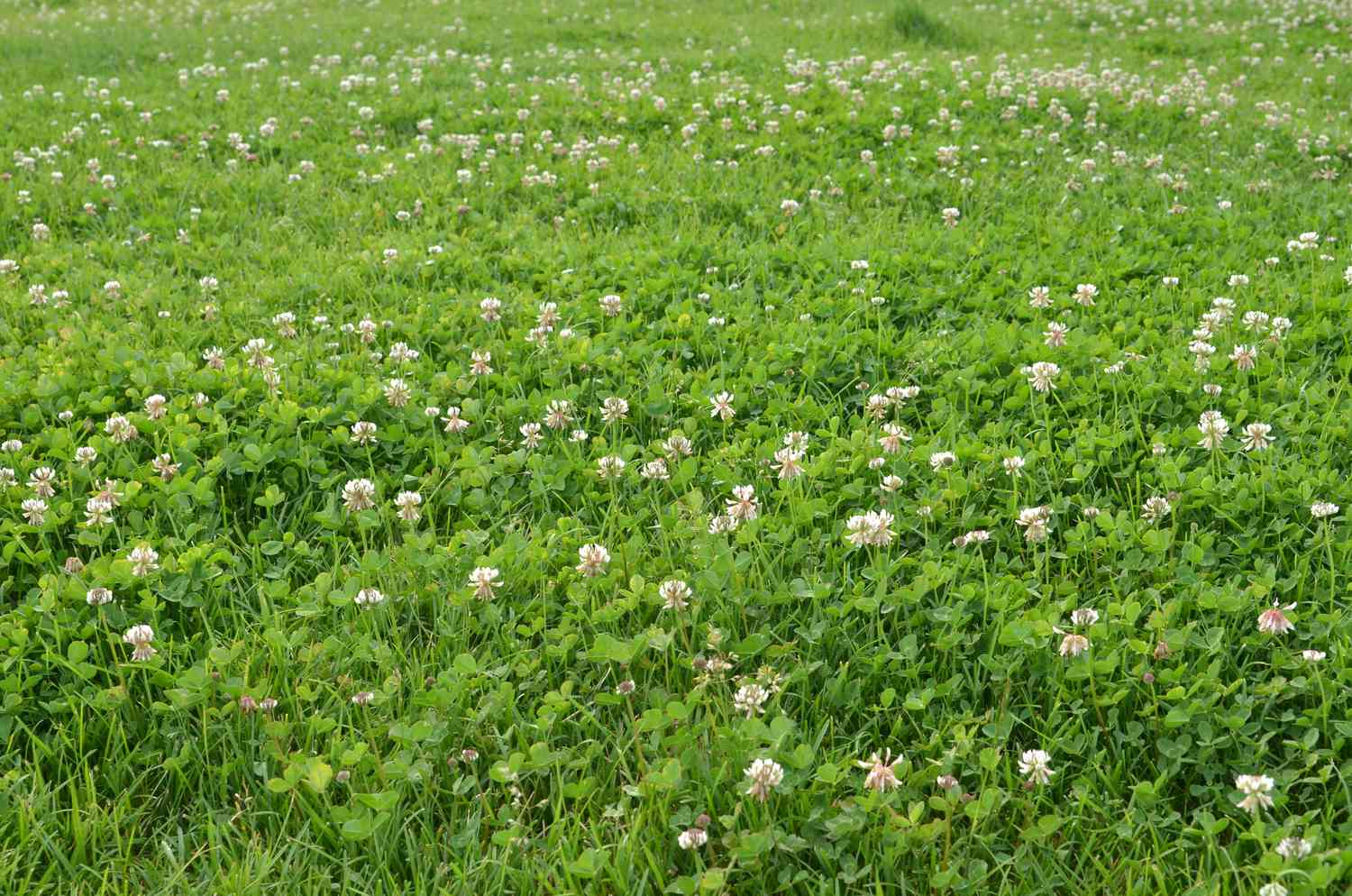The Benefits of Clover in Lawn
Clover, a small flowering plant, has gained popularity in recent years as a beneficial addition to lawns. In this article, we will explore the numerous advantages of having clover on your lawn, and how it can help you achieve a lush and healthy outdoor space.
Improved Nitrogen Fixation
One of the key benefits of clover in a lawn is its ability to fix nitrogen in the soil. Unlike grass, which requires nitrogen from external sources such as fertilizers, clover has a unique symbiotic relationship with nitrogen-fixing bacteria. These bacteria take atmospheric nitrogen and convert it into a form that plants can use, promoting healthy growth.
Enhanced Soil Health
Clover’s deep root system helps improve soil structure and drainage. The roots penetrate deep into the ground, loosening compacted soil and allowing water and air to reach the roots of other plants in the lawn. This leads to healthier soil, better water infiltration, and reduced soil erosion.
Natural Weed Suppression
Clover’s dense growth habit acts as a natural weed suppressor, reducing the growth of unwanted weeds in your lawn. The thick carpet of clover shades the soil, making it difficult for weed seeds to germinate and establish themselves. This means less time spent pulling weeds and more time enjoying a beautiful lawn.
Drought Tolerance
Clover has excellent drought tolerance, making it a resilient choice for lawns in regions with limited water availability. Its deep root system allows it to access water from deeper soil layers, reducing the need for frequent watering. Additionally, clover can withstand periods of dry spells better than traditional grass, maintaining its green color and vitality even in challenging conditions.
Attracting Beneficial Insects
Clover is known to attract beneficial insects such as bees and butterflies. These insects play a crucial role in pollination, which is essential for the reproduction of many plants. By incorporating clover into your lawn, you can create a habitat that supports these important pollinators, contributing to the overall biodiversity of your outdoor space.
Reduced Fertilizer and Pesticide Use
Due to clover’s ability to fix nitrogen in the soil, it reduces the need for synthetic fertilizers. This not only saves you money but also helps protect the environment by minimizing the use of chemicals. Additionally, the dense growth of clover helps suppress weeds, reducing the need for herbicides. By embracing clover in your lawn, you can adopt a more environmentally friendly approach to lawn care.
Maintenance Tips
To maximize the benefits of clover on your lawn, consider the following maintenance tips:
Mow your lawn at a higher setting to allow clover to thrive alongside grass.
Ensure adequate sunlight reaches the clover by trimming overhanging branches or thinning out dense tree canopies.
Water your lawn deeply and infrequently to encourage deep root growth in both clover and grass.
Avoid using broadleaf herbicides, as they may harm the clover. Instead, manually remove any broadleaf weeds.

In conclusion, incorporating clover into your lawn offers numerous benefits, including improved nitrogen fixation, enhanced soil health, natural weed suppression, drought tolerance, attracting beneficial insects, and reduced reliance on fertilizers and pesticides. By embracing clover, you can create a vibrant and eco-friendly lawn that stands out in terms of both beauty and environmental sustainability.
Frequently Asked Questions
1. Does clover benefit my lawn?
Yes, clover has several benefits for your lawn. It helps fix nitrogen in the soil, acts as a natural fertilizer, and provides a lush green cover.
2. Will clover attract bees and other pollinators?
Yes, clover flowers attract bees and other pollinators, which can enhance the biodiversity of your lawn and promote a healthy ecosystem.
3. Does clover compete with grass?
Clover can coexist with grass without causing significant competition. It helps suppress weeds and improves the overall health of the lawn.
4. Can clover handle drought conditions?
Yes, clover is more drought-tolerant compared to traditional grasses. It has deep roots that can access water from lower soil layers, making it resilient during dry periods.
5. Does clover require less maintenance?
Absolutely! Clover requires less maintenance than traditional grass. It doesn’t need frequent mowing, and its deep roots reduce the need for watering and fertilization.
6. Will clover make my lawn more resistant to pests?
Yes, clover releases chemicals that repel certain pests, making your lawn less attractive to them. This natural pest resistance can reduce the need for chemical pesticides.
7. Can clover improve soil quality?
Definitely! Clover is a nitrogen-fixing plant, meaning it takes nitrogen from the air and converts it into a usable form for plants. This enriches the soil and enhances its fertility.
8. Does clover help prevent soil erosion?
Yes, clover has a dense root system that helps prevent soil erosion. It stabilizes the soil, especially in sloping areas, and reduces the risk of runoff during heavy rain.
9. Will Clover reduce the need for chemical fertilizers?
Yes, by fixing nitrogen in the soil, clover reduces the reliance on chemical fertilizers. It provides a natural source of nutrients for your lawn, promoting a more eco-friendly approach to lawn care.
10. Does clover stay green during hot summer months?
Unlike some grasses that may turn brown in extreme heat, clover maintains its green color even during hot summer months. It has a higher tolerance to heat and can withstand dry conditions better.




